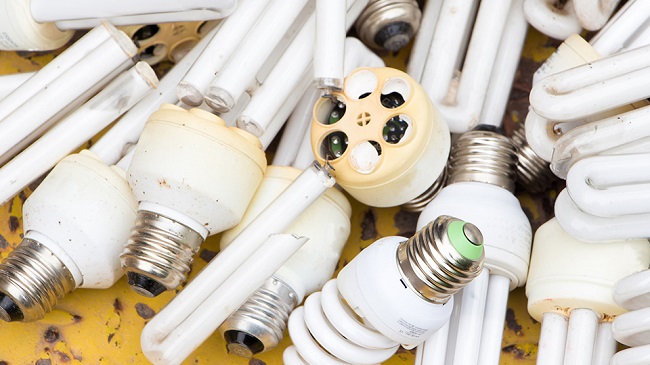The Zero Mercury Working Group (ZMWG) and the Clean Lighting Coalition (CLiC) are applauding a proposed amendment by the African Region to phase out most fluorescent lamps at the next meeting of the Conference of the Parties of the Minamata Convention on Mercury.

All fluorescent lights contain mercury. Broken or discarded bulbs haphazardly release this toxic substance mainly into the air, where it can bioaccumulate up the food chain, posing a risk to human health, wildlife and the environment.
“Millions of discarded lamps contribute to the global build-up of mercury in the environment,” said Rico Euripidou of groundWork in South Africa and a member of the Zero Mercury Working Group.
“Government studies also suggest that, under certain conditions, toxic lamp breakage can pose an acute health risk, especially to infants or young children who linger near where the bulb broke,” Euripidou added.
If adopted, the amendment would lead to a global phase-out of most fluorescent lighting products by 2025, resulting in massive cost savings, reductions in mercury pollution and cuts to global electricity consumption of up to 3%.
“We congratulate the leadership of the Africa Regional Group in accelerating the global transition to clean, mercury-free lighting,” said Rachel Kamande, Africa Lead with the Clean Lighting Coalition, a global partnership to eliminate mercury-based lighting. “There are now alternatives that are safer and more energy efficient, as well as less expensive.”
Health Benefits
Fluorescent lights were once viewed as an efficient alternative to more energy-intensive options, and risks associated with the small amount of mercury in each bulb were tolerated as a necessary trade-off. But major advances in light-emitting diode (LED) technology over the past decade have made LEDs a cost-effective alternative to replace virtually all types of fluorescents.
“Mercury in lighting is a public health concern in Africa, where proper disposal and recycling facilities are hardly ever available for consumers, government or the business community,” said Dominique Bally Kpokro, Chairman of the African Centre for Environmental Health in Cote d’Ivoire, and a ZMWG member.
“By embracing this transition, African governments are saying it’s time to stop using the continent as a global dumping ground for hazardous fluorescent lighting,” added Kpokro.
Dr Leslie Adogame, Executive Director, Sustainable Research and Action for Environmental Development (SRADeV Nigeria), and a member of ZMWG, said: “In terms of the overall impact of this global dumping and its human health impact, Nigeria is top on the highest risk category in Africa and our government must play a leading role in pushing for the proposed amendment and its eventual implementation, having ratified the Minamata Convention on Mercury.
“In addition, investments into LED manufacturing are a sustainable frontier for boosting Nigeria’s ailing economy.”
According to the ZMWG, adoption of the proposed amendment would keep 232 metric tons of mercury out of homes and businesses by 2050 – including both mercury used in lamps, and the mercury emissions from coal-fired power plants that would be avoided through lower electricity use for lighting.
Other Benefits
Economic: LED lighting is highly cost-effective because it is so much more efficient than other technologies. LEDs consume half as much energy and last up to three times longer than fluorescent bulbs, paying for themselves in lower energy costs within just a few months of purchase. For countries, they can reduce strain on the electric grid, reducing the need for costly investments in power plants.
Environmental: A global phase-out of common fluorescent lighting by 2025, as proposed in the amendment, would reduce global electricity demand by 3% and avoid 3.5 gigatons of climate-damaging carbon dioxide emissions, equivalent to removing all passenger cars from the road, globally, for a full year.
Business: There are many African businesses that manufacture LED lights or LED lighting components, and the sector is poised to grow rapidly over the coming decade.
